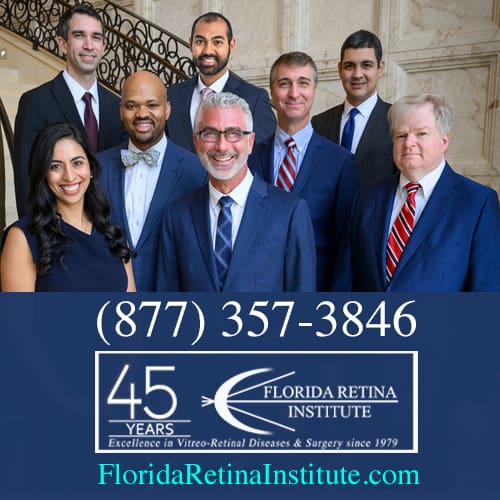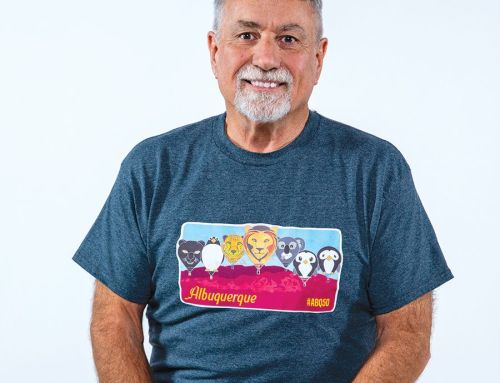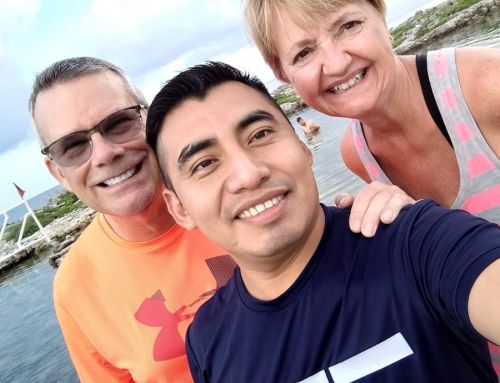
By Akers Editorial
Retirement 563: The non-financial aspects of retirement life

Home is where the “health” is.
Story: Nancy Stampahar, Retirement Life Coach Nancy
During our younger years, we learned “Home is where the heart is,” and “Home is where the wealth is.”
But as we age, and during our retirement years, we have come to realize that “Home is where the health is.”
Does your home and community provide the safety, access, comfort, and healthy lifestyle necessary for your well-being and natural aging changes?
According to the World Health Organization, there is a strong correlation between well-being and longevity, where approximately 25 percent of our health outcomes are determined by genetics, and 75 percent are obtained by lifestyle.
Well-being is a function of a healthy lifestyle, which is a compilation of physical health, mental health, emotional health, social health, and spiritual health. These components are the non-financial aspects of retirement life. The non-financial aspects of retirement life are obtained by the lifestyle we choose to live.
Most people spend their careers focused on financial retirement by planning to ensure their savings will carry them through their golden years. Most people do not invest their time or focus on the non-financial aspects of retirement.
Retirement is one of life’s greatest transitions that can last anywhere from 10 – 30 years or more. It could last the length of your adult role or career years. Retirement is the time in your life to be rewarded for your accomplishments. You earned your retirement. You deserve a life of leisure and freedom. Let the good times roll!

Retirement Life Coach Nancy Stampahar
Retirement brings excitement, fun, and freedom. But retirement can also bring disorientation and disenchantment. Due to changes in longevity, economics, and workplace dynamics, retirement is evolving into a new image and reality. According to Ken Dychtwald, psychologist, gerontologist, founder and chief executive of Age Wave, a consulting and research company, when someone retires, three substantial changes take place, “They struggle with their identity, relationships and activity,” he said. “Some people feel unsettled, anxious or even bored, but eventually they realize that relationships, wellness and purpose really matter — perhaps more than ever.”
Through the typical five stages of retirement, you will experience changes physically, emotionally, mentally, and socially. In addition to asking yourself, “How much money will I need to retire?” Soon-to-retire or early retirees need to ask themselves questions like:
- “Who will I be without my pre-retirement, career, or caregiver identity?”
- “What will I do for 10-30+ years?” “Who will I spend my time with?
- “What will be my purpose?”
- “How will I feel as I age and change?”
- “Where will I live?”
These are just a few of many questions to ponder for non-financial retirement planning. Are you and your home prepared to embrace the various challenges that retiring can bring during the five stages of retirement? Being aware of retirement realities and planning for the non-financial aspects of retiring, soon-to-retire or retirees, will ensure you are more prepared for a smoother transition and a healthy retirement lifestyle.
To help you with the transition, here is a look at the five common stages of retirement that most people experience at some point in their retirement journey.

First Stage: Pre-Retirement
The stage before you actually retire involves imagining your new life and planning for it. This stage can last five to 15 or more years before your actual retirement date.
Along with your finances, you need to consider where you will live and what will make you happy and fulfilled while you transition. By doing so, you can have a much smoother experience.
For many, this stage is a time of excitement and anticipation. But it can also be a time for worry and doubt, especially in the year or two before retirement. Anxiety tends to set in when people worry that they will not have enough money saved for actual retirement.
Second Stage: Full Retirement
The liberation or honeymoon phase of retirement occurs at the official beginning and can last from one to two years after retirement.
The liberation phase includes feelings of excitement, relief, and freedom from the stress and responsibilities of day-to-day working life.
People in this stage are usually busy reconnecting with family, friends, and spouses, and spending time on hobbies, traveling, and starting new businesses.
Instead of a taking a honeymoon vacation-like path in this stage, some people choose to settle into a routine immediately, waking up each morning with a plan in place, and often continuing activities that were part of busy schedules during their working life. And others opt for rest and relaxation after years of working demanding jobs that drained all their energy.

Third Stage:Disenchantment
Once the emotional high of retiring has worn off, and the honeymoon phase is over, many people feel a sense of disappointment and disillusionment. They have spent so much time looking forward to retirement, so once it sets in, it can feel less exciting than it was hyped up to be. And they may end up feeling like something is missing in their lives.
There can be downsides such as boredom, loneliness, and feeling useless. And if not addressed, it can be easy to slip into depression during this stage.
Fourth Stage: Reorientation
Often considered the most challenging stage, reorientation usually occurs after retirees quickly go through their retirement to-do list, feel a loss of purpose, and begin to evaluate their retirement experience.
Reorientation involves creating a new identity, and it can take time and effort to accomplish. But once you have built a new identity, you can gain a sense of closure from your working days and move on to enjoy retirement as it is meant to be.
To avoid falling into a rut and depression, it is crucial that you find something that gives you a sense of meaningful purpose later in life, such as pursuing a passion, volunteering, and adding new fun activities to your daily routine.
Fifth Stage: Reconciliation & Stability
This final stage may start up to 15 years after the official start of retirement. Retirees in this stage are content and hopeful in their transition and will experience less depression and anxiety.
In this stage, retirees are settled into a fun and rewarding retirement lifestyle, doing things that make them feel fulfilled. They prioritize simplifying their lives and living relaxing lifestyles.
Health conditions may be more prevalent during this stage, so retirees focus on maintaining their health and independence, sometimes by moving to retirement communities where they can age in a place with access to healthcare, amenities, activities, and friends nearby.

The following six retirement lifestyles categories will spur your thinking:
Traditionalist: The Traditionalist stops working and engages in a variety of nonpaid, mostly leisure activities.
Altruist: The Altruist stops working and instead volunteers, as a board member or in other roles.
Lifelong Learner: The Lifelong Learner stops working and pursues a nonpaid activity that requires significant practice and continued learning.
Stair Stepper: The Stair Stepper continues to work in the same career, while gradually cutting back.
Boomeranger: The Boomeranger takes a break and then returns to work.
The Reinventor: The Reinventor continues to work in a new career or another role.
It is important to note that everyone moves along their retirement journey in diverse ways, paces, places, and intensities. Retirement is not a one-path-fits-all journey. Retirement is based on each retirees’ unique needs, values, financial resources, and interests. The critical keys for a fulfilling and happy retirement life are to live your golden years with purpose, meaning, and a healthy lifestyle, wherever you live. Does your home and community provide you the lifestyle necessities to ensure your optimal well-being throughout the five stages of retirement?
Fortunately, The Villages and its surrounding communities provide a vast number of opportunities and amenities for the 55+ population to thrive. In The Sunshine State and other parts of the country, developers have been shifting to the needs and desires of today’s older adults. They too are realizing that “Home is where the health is.” and creating new older, active adult communities and facilities. An aging person’s home design needs to accommodate mobility challenges with safety measures like grab bars and anti-slip flooring. The home also needs to be in a location conveniently accessible to health services and social connections. Needs change over time. You just need to explore your options and weigh the pros and cons for the type of home and community that best fits your needs and desires.
In addition to the abundance of leisure activities to enjoy, there are an array of volunteer and work-related opportunities to give your retirement purpose and meaning. According to a survey by the Transamerica Center for Retirement Studies, 66 percent of baby boomers plan to work or are working past age 65. Seniors continue to work longer than ever due to either needing or wanting additional income, purpose, mental stimulation, structure, socialization, or simply because they love what they do. It is said that more than 30% of Villagers work in varying capacities.

Your retirement is an opportunity for a new beginning or a new you. Whether you live in or outside The Villages, living in a home and community that provides you opportunities for a fulfilling and enjoyable retirement lifestyle will better equip you to enjoy the retirement you always imagined.
This is your time. You earned it. You deserve it. Take diligent care of yourself and let the good times roll!
Retirement Life Coach Nancy is a life coach for seniors. Nancy helps soon-to-retire or retirees plan for smooth retirement transitions and get reoriented after experiencing retirement challenges. Nancy’s mission is to do everything she can to ensure your “Golden Years” are truly golden. Life is getting shorter and going by faster. Now is the time to enjoy the retirement lifestyle you always dreamed of enjoying. Visit: RetirementLifeCoachNancy.com
Sources:
The 5 Stages of Retirement compiled by Eric Paquette, Wildpine Residence, Canada
The 6 Retirement Lifestyle Options titled by Gail M. McDonald & Marilyn L. Bushey






























